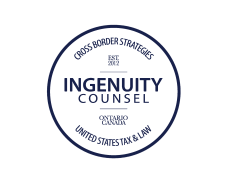Florida’s Verification of Employment Eligibility Law, effective January 1, 2021, requires private employers to use E-Verify or to use the Form I-9 and maintain copies of the documents used to complete the Form I-9 for three (3) years.
The new legislation places a burdensome documentation requirement on private employers in Florida that exceeds the requirements set out in federal law with respect to the type of documentation an employer must maintain with the Form I-9. In doing so, it potentially creates a two-track system for private employers with operations and licensed to do business in Florida when completing Form I-9. Or, in the alternative, it requires private employers to change their respective Form I-9 processes to photocopy documentation presented by the employee for Section 2 purposes.
Private employers in Florida must (a) use the E-Verify system for new hires; or (b) duplicate the Form I-9 process by requiring the documents employees presented during the Form I-9 completion be copied and retained in order to comply with Florida law. Employers must maintain those documents for at least three years after the date of hire.
If an employer currently has a practice of photocopying documents, presumably they are not affected, because pursuant to federal law, employers must retain the Form I-9 and any corresponding documents photocopied for Form I-9 Section 2 purposes for three (3) years after date of hire or one (1) year after termination, whichever is later.
However, if an employer currently does not photocopy documents presented by new hires when completing Form I-9 (which is not required under federal law), they are most directly impacted by this new requirement. They either have to change their practices with respect to Form I-9 completion and begin photocopying documents or run the risk of an enforcement action by Florida authorities.
Non-compliance with Florida law may lead to revocation of a company’s license to do business in the state. The following Florida agencies may request proof of documentation, including the Florida Department of Law Enforcement, the Attorney General, the state attorney, and a state prosecutor. While the legislation affords employers a period to cure the violation and provide an affidavit of compliance, failure to do so may lead to suspension of their business license. Repeat violators are subject to revocation of their business license.
As a general rule, unless an employer uses E-Verify, photocopying the documents presented for Form I-9 Section 2 purposes is not required by federal law. Employers may, but are not required to, photocopy the document(s) presented by the new hire when completing the Form I-9. Thus, this new Florida law adds requirements that are not part of federal law.
If you are considering expanding your business into the United States or already have a presence in the U.S., please do not hesitate to contact us through our Consultation Form. You can also visit us at www.ingenuitycounsel.com.
About Ingenuity Counsel & Michael Kennedy
Ingenuity Counsel, based in Windsor, Ontario, Canada, provides cross border tax & United States legal services to Canadians. Michael Kennedy, with close to 20 years of legal experience, and his team at Ingenuity Counsel, advise Canadians who own property in the United States, particularly Michigan, California & Florida, with respect to federal income & estate tax, estate planning & probate administration.
Mr. Kennedy is an attorney-at-law admitted in the States of California, Michigan & Florida. He is also authorized as a Foreign Legal Consultant by the Law Society of Ontario to provide legal services in Ontario respecting the laws of the United States. Mr. Kennedy provides legal advice only as it pertains to U.S. laws. Prior to establishing Ingenuity Counsel in 2012, he practiced law in the United States for more than 10 years in California, Michigan and Florida. Michael has a U.S. law degree (JD) from Western New England University School of Law and his Master of Laws degree (LLM) from Georgetown University Law Center in Washington DC.
